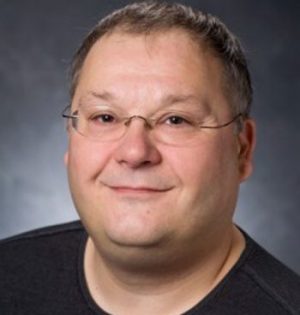Growing up in the Netherlands, SPIA Professor Cas Mudde never understood why the small amount of radical right political activity was so pervasive in the news. Why was everyone on high-alert over something so small? Recently, as the alert has reached new heights, Mudde’s research focuses on one question: how can liberal democracy defend itself against political challenges without undermining its core values?
Mudde, who began working at SPIA in 2012, examines threats from the far-right, far-left, religious terrorism as well as from states – a timely topic that has helped his work gain considerable media attention. His recent examination of the divisive U.S. election’s implications has led to his work being featured in The Guardian, Foreign Affairs and The Huffington Post, among others.
Mudde, a self-proclaimed “fairly obsessive op-ed writer” wrote about 70 blog posts and op-eds in the past two years, has just published four books, and has four books in the works – when he imagined writing one book every five years.
“That would not have happened if this were not such a big issue,” he says, regarding publishers’ interest in his work. “But that makes it more interesting, more challenging. When you write about something happening all the time, it also means it changes all the time.”
Beyond his written work, Mudde is launching a fundraising effort this month to establish the Center for Analysis of Democracy and Extremism (CADE) at UGA. His vision for the Center, which will address his same underlying research question, is to “stimulate, integrate and disseminate knowledge about threats to liberal democracy.” He hopes this physical place will bring academics, journalists and practitioners together in an interdisciplinary environment.
He is also working with Mary Miller, of the Peabody Archive, on “Cinema Politique”: a series of monthly politically-focused film screenings, followed by short Q&A sessions with a professor. This initiative will introduce students and the broader community to both pressing political issues and world cinema.
“It’s hard when you come from Marietta and you read about a non-democracy,” he says. “How can you imagine that when you have never been to any place [with] those constraints? A movie does that for you – and a good movie does that well.”
Mudde’s overarching goal is to convince people on the basis of existing research that Americans, when approached with radical political threats, need not try to reinvent the wheel, but can learn from other democracies. “I find it crucial that academic insights are translated to non-academic audiences,” Mudde says. “I think of my audience as citizens, rather than academics.”






